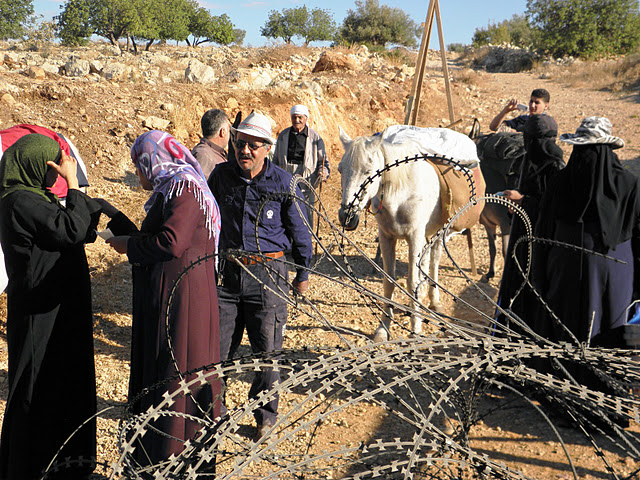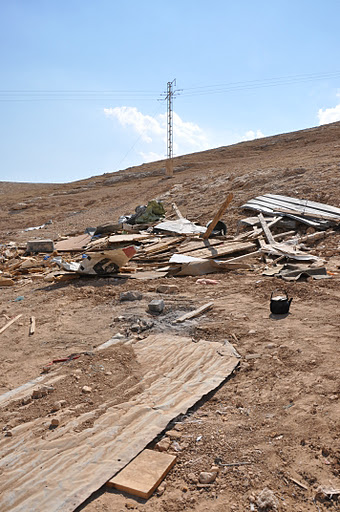-
Nil’in: The solitary confinement of olive trees
by Aida Gerard 31 October 2011 | International Solidarity Movement, West Bank The selective Israeli permission system prevents many families from Nil’in from reaching their land behind the wall to pick their own olives as the olive harvest season nears its end. The families who received permissions have until the 10th November to pick their […]
-
Israel: Charging house demolition victims to pay costs of demolition equipment
by Samira | International Solidarity Movement, West Bank The people in the Bedouin community, Mihtawish, in Khan el Ahmar area outside Jerusalem today faced a house demolition. Three family houses were demolished, which hosted in total 39 people. 30 of them are children. One family lived in their house year round and two were soon […]
-
Literal buzzkills: What it feels like underneath an Israeli drone
Sami Kishawi 30 October 2011 | Sixteen Minutes to Palestine Unmanned Israeli drones have been circling over the Gaza Strip for more than a day now. Few people outside of Gaza realize just how psychologically torturing this can be. Not only are the drones loud and incessant, but they also instill fear: the drones are able […]
Action Alert An Nabi Saleh Apartheid Wall Arrests BDS Bethlehem Bil'in Cast Lead Demonstration Denial of Entry Ethnic Cleansing Farmers Gaza Global Actions Hebron House Demolition International law Israeli Army Jerusalem Live Ammunition Nablus Ni'lin Prisoner Ramallah Rubber-coated steel bullets Settlement Settlers Settler violence Tear-Gas Canister Video



